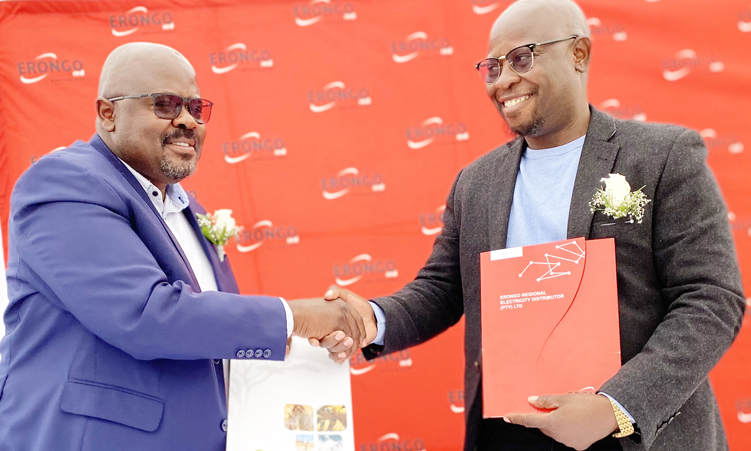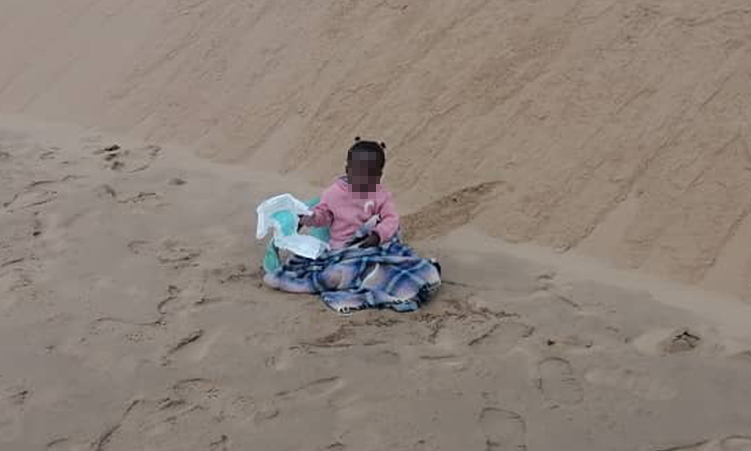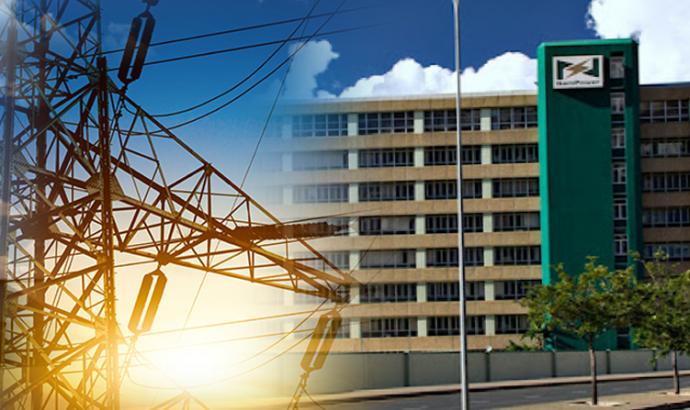Some 32 homes belonging to Shack Dwellers Federation of Namibia (SDFN) members at Swakopmund will soon be electrified.
This comes after the Environmental Investment Fund of Namibia (EIF) and the Erongo Regional Electricity Distributor (Erongored) signed an agreement to this end on Thursday.
The agreement was signed by Erongored chief executive Immanuel !Hanabeb and the EIF’s chief operations officer, Karl Aribeb, on behalf of chief executive Benedict Libanda.
The deal formalises the commitment of both organisations to collaborate on a solar electrification drive to provide selected communities in the Otjozondjupa, Kunene, and Erongo regions with concessionally funded solar installation.
The project aims to facilitate expanded access to affordable solar and renewable energy technologies.
It will also offer mentoring, capacity building, and technical development training to small and medium enterprise (SME) owners in these regions.
“The nature and purpose of this collaboration is a top priority as it is beneficial to the people of Mondesa, and more so, the people of the Erongo region,” said Erongo governor Neville Andre.
The project is expected to serve as a blueprint for future initiatives, aiming to achieve an electrification benchmark of up to 300 households and five SMEs.
The drive further targeted individual households within the identified communities, of which 50% are women-headed households.
The Swakopmund beneficiaries are low-income working individuals who cannot afford to purchase equipment to connect to the grid.
The agreement falls under the the Towards an Inclusive Design of the Renewable Energy Transition project, which is an initiative led by the EIF under the European Union’s Climate Change and Inclusive Use of Natural Resources Project of the Ministry of Environment, Forestry and Tourism , administered through the German Agency for International Cooperation.
Aribeb said the project tackles several systematic barriers in Namibia’s green economy agenda and supports the nationally determined contributions.
“Since its operationalisation in 2012, the EIF has mobilised climate financing amounting to N$3,7 billion for investments in climate-smart agriculture, ecosystem-based adaptation, and renewable energy,” he said.
Aribeb said the current dependence on South Africa for electricity supply puts Namibia in a vulnerable position, especially the rural and informal settlements, and emphasised the untapped potential of sun and wind resources in Namibia.
“What we are witnessing today is not only an illumination of homes, but also a demonstration of what can be achieved when individuals and organisations come together for a common purpose to improve the livelihood of our communities,” !Hanabeb said.
According to him, Erongored currently provides subsidies to over 11 000 customers, mostly pensioners, translating to over N$20 million annually, demonstrating its commitment to community welfare.
Stay informed with The Namibian – your source for credible journalism. Get in-depth reporting and opinions for
only N$85 a month. Invest in journalism, invest in democracy –
Subscribe Now!





